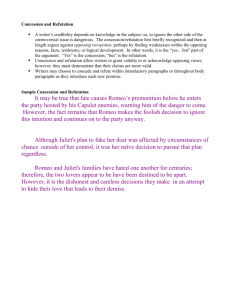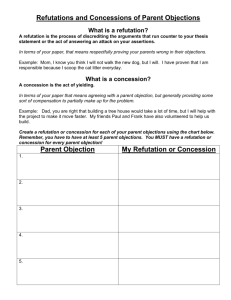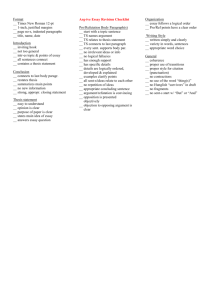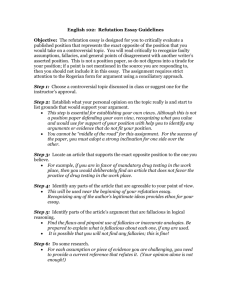Refutation PPT
advertisement
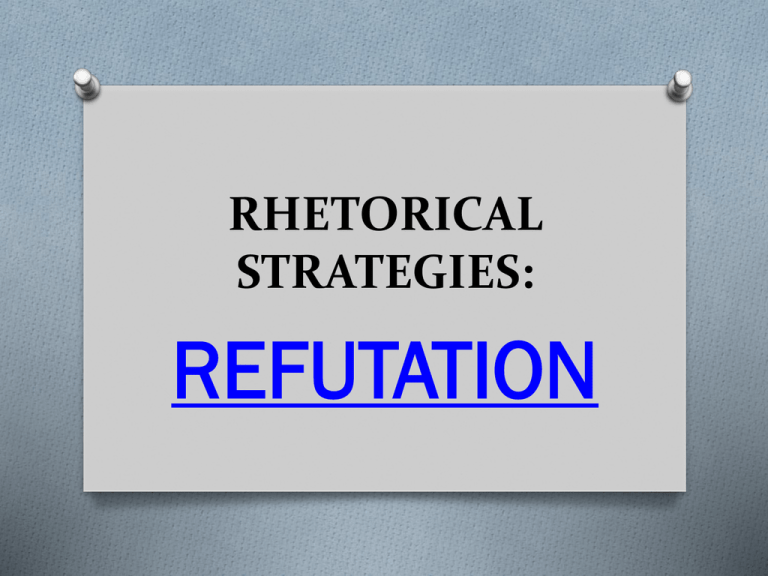
RHETORICAL STRATEGIES: REFUTATION REFUTATION disprove a claim disagree with a claim question the assumptions made or suggested refutation does NOT prove that you are right refutation proves only that the other side is probably wrong 2 REFUTATION I. Refutation through DEFINITION: O define, clarify, or redefine the key terms in the claim II. Refutation through QUALIFICATION: O suggest that the claim is an overgeneralization that needs certain qualifiers O “many” or “most” or “a preponderance” or “a majority” or “several” O instead of “all” or “none” or “every” (everyone, everything, every) 3 REFUTATION III. Refutation through EXAMPLES: ** O the most common method O use specific instances & examples name names or titles or dates & times to demonstrate exceptions 4 REFUTATION Do NOT try to refute the claim by attacking the person. ** O argue the point, not the person making the point O ethos breakdown O ad hominem: logical fallacy 5 REFUTATION WHY Use Refutation in Your Essay: When sides are polarized on a controversial issue O If there are only 2 sides & you demonstrate weaknesses in your opponent’s argument, then your side looks better O BUT your side is NOT proven right O gun control, politics, gay marriage, abortion, war, … 6 REFUTATION WHY Use Refutation in Your Essay: “Deconstruction”: O “Decenter” your opponent’s argument by attacking its core, center, heart O Without a center, their argument cannot hold 7 REFUTATION WHY Use Refutation in Your Essay: Similarly, pointing out flaws in your opponent’s logic O demonstrates your insight & logic O builds your ethos O forces them to reconsider or clarify or rethink 8 REFUTATION WHY Use Refutation in Your Essay: Thoroughly examining your opponent’s claims, grounds, and warrants Helps establish or build your ethos O Since you demonstrate careful analysis, O Your credibility rises 9 REFUTATION WHY Use Refutation in Your Essay: Pointing out counter-arguments O Is not just criticizing O moves the argument along Side #3 Clarification 1 0 END
